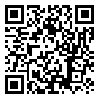BibTeX | RIS | EndNote | Medlars | ProCite | Reference Manager | RefWorks
Send citation to:
URL: http://www.iust.ac.ir/ijae/article-1-120-en.html
In this paper, the acoustic environment in a vehicle cabin under the influence of highfrequencies aerodynamic sources has been studied. Some panels on the windshield, the roof, the doors, the front pillars, and the floor of a vehicle simulated as input source of noise when the car is moving at high speed, i.e. 112 km/h. The status of vehicle cabin in each of these modes has been studied and compared to each other. There are some methods to simulate acoustic behavior of a vehicle cavity such as Finite Elements or Statistical Energy Analysis methods. A brief overview for Statistical Energy Analysis (SAE) is stated. In this study, the statistical energy method is used for determination of acoustic analysis. Auto SEA software is used to simulate and estimate the amount of sound pressure level. In addition, sound pressure formulation presented and used for comparison in vehicle cabin points and with experimental results for validation. Also, considering viscoelastic materials, a common form of material nonbinding panel has determined. The result shows that the roof is the most important panel in acoustic analysis under influence of aerodynamic sources. Accordingly, this panel has more effectiveness in optimization to control sound pressure level in a vehicle cabin. In addition, the amount of reduction in sound pressure level (SPL) in the cabin with viscoelastic material is presented as it could diminish the vibration of plates. In addition, the effect of using acoustic glasses is presented. Finally, the SPL effect of passenger position including front and rear is investigated and compared
| Rights and permissions | |
 | This work is licensed under a Creative Commons Attribution-NonCommercial 4.0 International License. |





